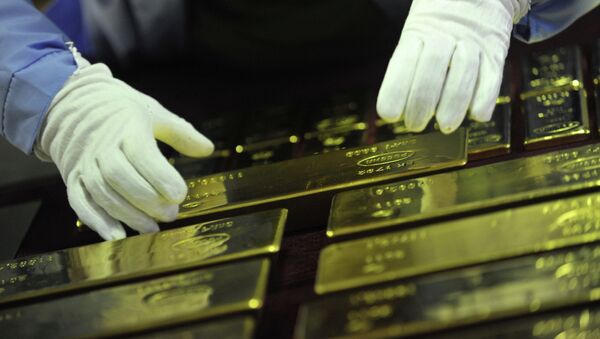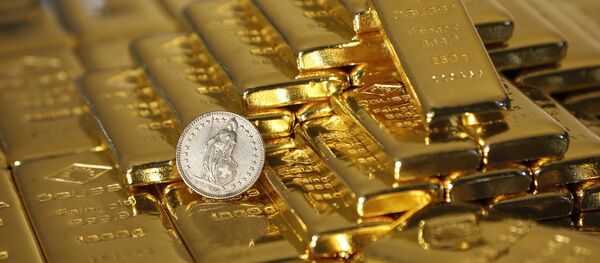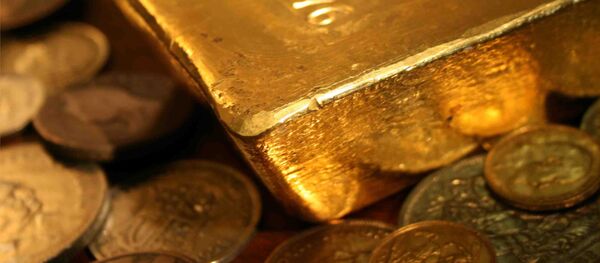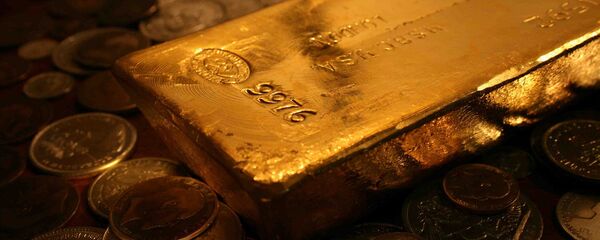Key central banks, particularly the Federal Reserve and Bank of England, and Western market players have long been accused of clandestine gold price manipulating aimed at preserving the dollar's role "as world reserve currency primus," American-German economic researcher and historian F. William Engdahl writes.
"The COMEX gold futures market in New York and the Over-the-Counter (OTC) trades cleared through the London Bullion Market Association do set prices which are followed most widely in the world. They are also markets dominated by a handful of huge players, the six London Bullion Market Association gold clearing banks — the corrupt JP MorganChase bank; the scandal-ridden UBS bank of Zurich; The Bank of Nova Scotia — ScotiaMocatta, the world's oldest bullion bank which began as banker to the British East India Company, the group that ran the China Opium Wars; the scandal-ridden Deutsche Bank; the scandal-ridden Barclays Bank of London; HSBC of London, the house bank of the Mexican drug cartels; and the scandal and fraud-ridden Societe Generale of Paris," Engdahl narrated.
In a word, operations with the precious metal in London and New York are in questionable hands, the economic researcher noted.
The West's ultimate goal is to preserve the dollar's monopoly in the market thus breathing life into the US-led global financial system. But no one likes monopolists.
Predictably, the current state of affairs cannot satisfy rising economies, such as China, Russia and other emerging powers.
However, "[r]ather than scream and cry 'fraud' at the owners of the COMEX/CME or the London Bullion Market Association Big Six clearing banks, these countries are involved in the genial move to create an entirely different gold market, one that not JP MorganChase or HSBC or Deutsche Bank control, but one that China, Russia and others of a like mind control," Engdahl stressed.
In May 2015 Beijing announced it had established a state-run gold investment fund, aiming to bolster China's role in global gold trade. The new initiative is a part of China's ambitious One Belt and One Road plan. The "Silk Road Gold Fund" will invest in mining projects in the regions along the New Silk Road encouraging central banks of its members to increase their holdings in the precious metal.
"As China has expressed it, the aim is to enable the Eurasian countries along the Silk Road to increase the gold backing of their currencies. That sounds very much like some clear-thinking and far-sighted governments are thinking of creating a stable group of gold backed currencies that would facilitate orderly trade free from Washington currency wars," the economic researcher elaborated.
Over the past several years Russia has been rapidly replenishing its vaults with golden bullions. In accordance with official data, Russian physical gold reserves currently amounted to 1250.9 tons in June 2015.
Today Russia is considered the world's third largest gold producer with 245 metric tons produced in 2014, while China produces over 450 tons a year.
"South Africa, also a member of the BRICS along with China and Russia, stands to add to the new energy surrounding a renaissance in gold as a support of solid, well-based currencies to replace the diluted and devalued dollar system," the researcher stressed.
Interestingly enough, according to the ANZ Research report "East to El Dorado: Asia and the Future of Gold" the gold price may soar as high as $2,000 a troy ounce by 2025. ANZ Research underscored that gold, despite its current slump, remains both an investment and a defensive asset. The rise of emerging economies, such as China and India will facilitate the demand for gold investments.
"While most eyes are fixed on COMEX or the London Bullion Market Association listed daily gold price fix, the real worth of gold as a currency reserve and a standard of monetary soundness is growing in worth by the day," Engdahl concluded adding that this trend is a real pain in the neck of the US Treasury, Federal Reserve and Wall Street.





